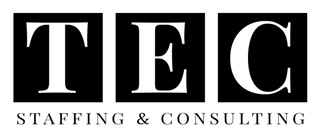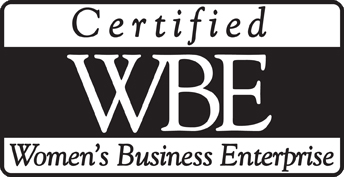How to Demonstrate You're the Right "Fit" for the Job
How to Demonstrate You're the Right "Fit" for the Job: Tips for a Successful Interview
Are you preparing for a job interview? If so, one of the most important things you can do is to demonstrate that you are the right “fit” for the job. This means showing the interviewer that your skills, experience, and personality match what they are looking for in a candidate. In this blog post, we will discuss some tips on how to do this effectively.
Do your research
Before you walk into the interview, it's important that you take some time to research the company and the role you're interviewing for. This will help you ask informed questions and demonstrate to the interviewer that you're serious about the opportunity.
Additionally, research can help you identify potential red flags about the company or role that may not have been apparent during your initial research phase. For example, if you read negative reviews about the company's treatment of employees, you may want to think twice before accepting a job offer.
Ask thoughtful questions
Asking questions shows that you're engaged in the conversation and interested in learning more about the company and role. At the same time, avoid asking questions that could easily be answered by a quick Google search—this will make it seem like you haven't done your homework.
Instead, focus on asking questions that will give you a better understanding of the company culture or what day-to-day life in the role would be like. For example, you might ask about what kind of opportunities there are for professional development or what the team dynamic is like.
Be prepared to answer common interview questions
There are certain questions that are bound to come up in an interview. Practice your responses to these ahead of time so you don't get caught off guard. Here are a few of the most common interview questions today:
1. Tell me about yourself.
This is often one of the first questions you'll be asked in an interview. While it may seem like a simple question, it's actually your opportunity to make a great first impression. Keep your answer focused on your professional accomplishments and aspirations. Avoid personal details or discussing anything that isn't directly related to your qualifications for the job.
2. What are your strengths?
When answering this question, think about the skills and qualities that make you a good fit for the job. For example, if you're applying for a position as a marketing manager, you might say that you're an excellent communicator or have experience managing successful campaigns. Be sure to back up your claims with specific examples.
3. What are your weaknesses?
Everyone has weaknesses, but this isn't the time to focus on them. Instead, think about qualities that could be seen as strengths in the context of the job you're applying for. For example, if you're applying for a position that requires a lot of independent work, you might say that you have trouble staying motivated when working on projects alone. However, you could also spin this by saying that you're excellent at taking initiative and working independently to get the job done.
4. Why do you want this job?
Your answer to this question should be more than just "I need a job." Instead, focus on what drew you to the company and the position specifically. Do your research before the interview so that you can speak knowledgeably about what the company does and how the role you're interviewing for fits into that. For example, if you're interviewing for a position as a customer service representative, you might say that you're impressed with the company's commitment to providing excellent customer service and that you want to be part of that team.
5. Where do you see yourself in 5 years?
This question is designed to assess your long-term goals and whether or not they align with those of the company. When answering this question, focus on how your career will develop at the company if everything goes according to plan. For example, if you're interviewing for a position as an entry-level analyst, you might say that in 5 years you hope to be promoted to senior analyst or manager. This shows that you're interested in developing your career within the company and are looking for opportunities to grow and advance within the organization.
Dress for success
First impressions matter, so it's important that you dress and speak in a way that is professional and respectful. This means avoiding slang or off-color jokes, dressing in business casual or nicer clothing, and maintaining good eye contact throughout the interview.
It's also important to be honest—if you try to fake your way through an answer or exaggerate your skillset, it's likely that the interviewer will see right through it. The goal is to be confident without coming across as arrogant, so stay humble and let your accomplishments speak for themselves.
Be yourself
The interview is your chance to show the hiring manager who you are as a person, so don't try to be someone you're not. Be honest about your qualifications and let your personality shine through. The goal is to demonstrate that you would be a good fit for both the job and the company culture.
Final Thoughts
A successful interview is
key to landing a job offer. By following these tips, you can set yourself apart from other candidates and show the hiring manager that you're not only qualified for the role, but that you're also the best person for the job.






